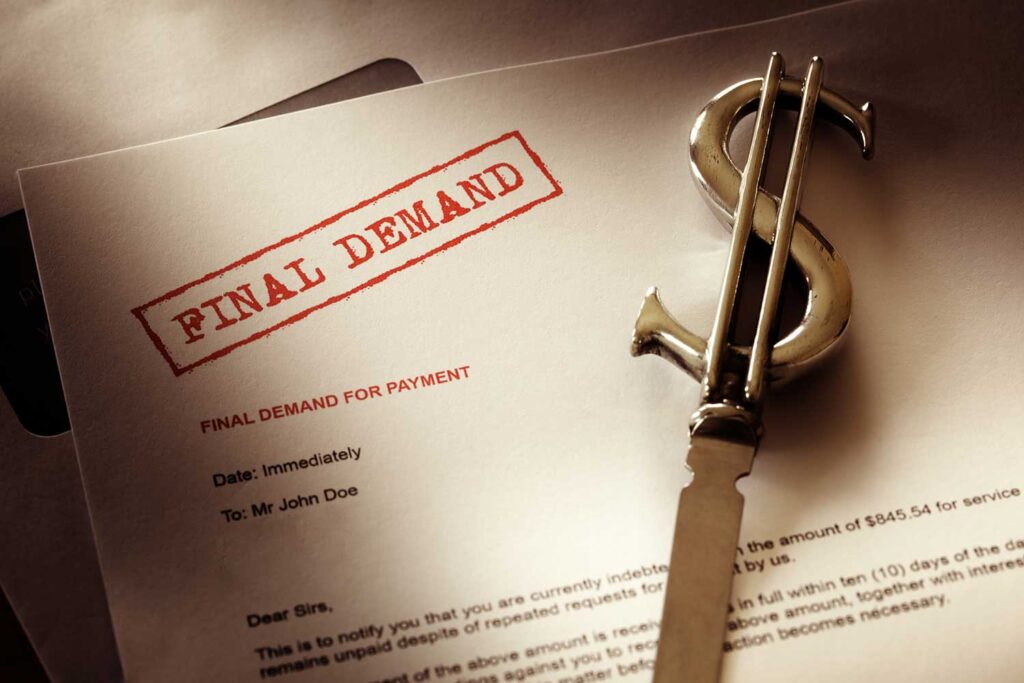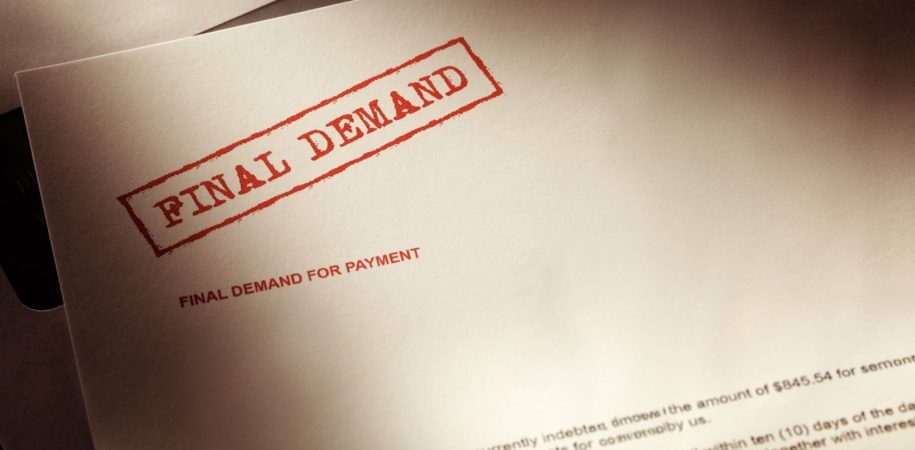A letter of demand is a formal written request – usually for the payment of a specific amount of money. But it can also demand that someone take, or stop taking, certain actions.
In this article, we’ll focus on letters of demand used to recover liquidated debts – clearly specified amounts that are owed (such as unpaid invoices).
When Should You Send a Letter of Demand?
You can send a letter of demand at any time. However, it’s generally best to send it soon after the payment becomes overdue.
If you’ve already tried following up – via email, phone calls, or written reminders, and received no resolution, a letter of demand may be the next appropriate step.
Best practice: Send a letter of demand within 7 to 14 days after the due date. Delaying recovery action can make it harder to get paid.
Why Use a Lawyer to Send It?
While there are no strict legal rules about what a letter of demand must contain, having it prepared and sent by a lawyer can make a big difference.
Here’s why:
- It shows you’re serious.
- It increases the likelihood of a prompt and respectful response.
- If the debtor replies without legal advice, they may make admissions that strengthen your legal position.
- Even if there’s no reply, the letter can serve as evidence in court or settlement negotiations.
What Should Be Included in a Letter of Demand?
A well-prepared letter of demand should include the following:
- Reason for the debt – Explain why the person owes the money (e.g. an unpaid invoice).
- Exact amount due – Clearly specify the amount, including any applicable interest or late fees.
- Deadline for payment – Set a firm date for when payment is expected (e.g. within 7 days).
- Consequences of non-payment – State what action you’ll take if payment is not received (e.g. legal proceedings).
Received a Letter of Demand? Here’s What to Do
If you’ve received a letter of demand, don’t panic – but don’t ignore it either.
Even if you believe the demand is unfair or the amount is incorrect, it’s crucial to respond appropriately. Ignoring a letter of demand may result in formal court proceedings, which can increase costs and stress.
You may have a valid dispute if:
- The amount claimed includes fees or charges that weren’t agreed upon.
- The goods or services provided were defective or not fit for purpose.
- There was a misunderstanding or breach of agreement.
In these cases, speak to a lawyer promptly. You might be able to:
- Negotiate a lower settlement,
- Propose a payment plan, or
- Offer to fix or resolve issues raised in the demand.

What is a letter of demand in Australia?
A letter of demand is a formal request asking someone to pay a debt or take action. It is usually the final step before starting legal proceedings.
Do I need a lawyer to send a letter of demand?
Not necessarily, but a lawyer’s letter carries more weight and ensures your rights and claims are correctly expressed.
How long should I give someone to pay after sending a letter of demand?
Typically 7–14 days, depending on the circumstances and urgency.
Should You Get Legal Advice?
Yes. Whether you’re trying to recover a debt or you’ve been served with a letter of demand, getting legal advice early helps you avoid unnecessary costs, stress, and delays.
Need Help with a Letter of Demand?
At Allen Law, we assist individuals and businesses with both sending and responding to letters of demand. Our goal is to resolve disputes efficiently and cost-effectively, before they escalate.
Phone: (03) 7020 6563
Email: enquiries@allenlawyers.com.au
Website: www.allenlawyers.com.au
Disclaimer: This article is general in nature and does not constitute legal advice. Please contact Allen Law for advice tailored to your particular situation.


